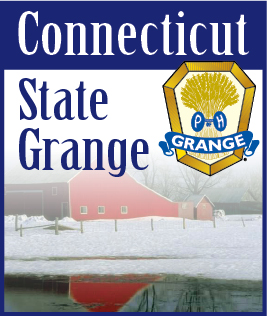| FEBRUARY 12, 2012 -- This week in review: around 10,000 conservatives landed in Washington for a much needed pep rally; Congress passed a bill preventing Congressional members from trading their own stock portfolios (nobody else has money to trade anyway); Rick Santorum received three victories in one night, sending Mitt Romney into cardiac arrest; the USPS reiterated that without congressional help they’ll be going “postal” by October; China told Canada “Forget United States- you bring oil, we pay big money;” President Obama gave me a reason to love the Vatican; underwater home owners got a $26 billion settlement 3 years too late; and there’s still no deal on payroll tax cuts.
With all of this craziness consuming everyone’s time and concentration, it’s no wonder why there’s a major issue going on that’s not receiving as much public attention as it should- spectrum.
Truthfully, spectrum is a complicated issue and I am not expert on it- but it is critical to the expansion of broadband to rural America, and is something we should all be aware of- so I’ll try my best to explain it here. Spectrum refers to the government-controlled airwaves that companies purchase or license to transmit wireless signals. It’s required for television, Internet, radio, etc. There is a limited and finite amount of it, and as with all precious resources- much of it is unused, underused, or improperly used. Right now, there’s not enough for everybody to enjoy fast and efficient service, which is why you often experience dropped calls, dead zones, and many rural areas can’t get a signal at all.
As one result of President Obama’s National Broadband Plan, which requires 500 megahertz of spectrum (what radio waves are measured in- like your local radio station 93.7, 95.5, etc.), TV companies are going to auction off over 120 MHz by shifting channels around (naturally, they’re set to receive some of the profits). At first glance, an auction seems like an honest, free-market solution to decide who gets it and how much. However, the problem right now is that the Federal Communications Commission has the authority to establish the rules of the auction- including who even gets to bid.
Putting that issue aside, for fun let’s just assume that everyone will get a chance to bid (remember- just for fun). Then the question becomes: is more competition a good thing in this instance? Smaller firms with little amounts of spectrum probably won’t be able to make as much of an impact in the expansion of broadband but have been committed to the investment of wireless in the not-so-popular high cost areas. The alternative seems to be giant firms (AT&T, Verizon, etc) with large amounts of spectrum monopolizing the market. Which is better, and which will provide the best prices for consumers? There are a lot of differing opinions on that right now.
Naturally, my democratic, all-American girl attitude has already concluded that the free market should always be just that- free, with anyone and everyone being able to participate. Historically, the free market system has always resulted in higher productivity, higher revenues for tax payers, and greater freedom for all. But that’s just my opinion.
This battle over spectrum has just begun, and there is bound to be more in the next weeks as Congress and FCC battle over turf and telecom companies size up their auction items. I will be monitoring it very closely, as should everybody interested in receiving and/or maintaining their high-speed Internet. To be continued…
Post Script: Many of you may have heard of Block D spectrum. This auction will not include any of the Block D spectrum that is currently used for government and first responders. At this point that spectrum is not to be auctioned.
-Grace Boatright
National Grange Programs Assistant |
